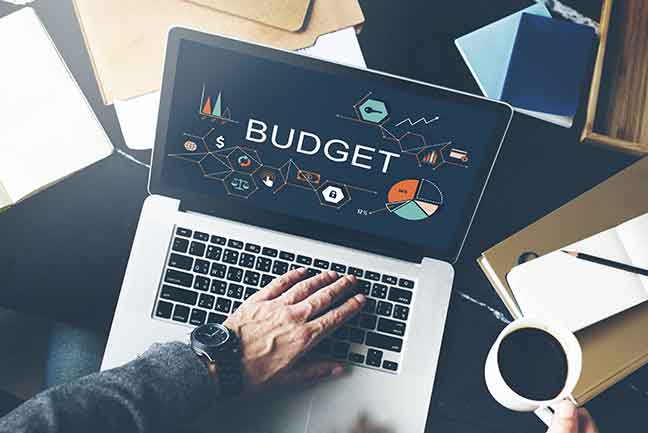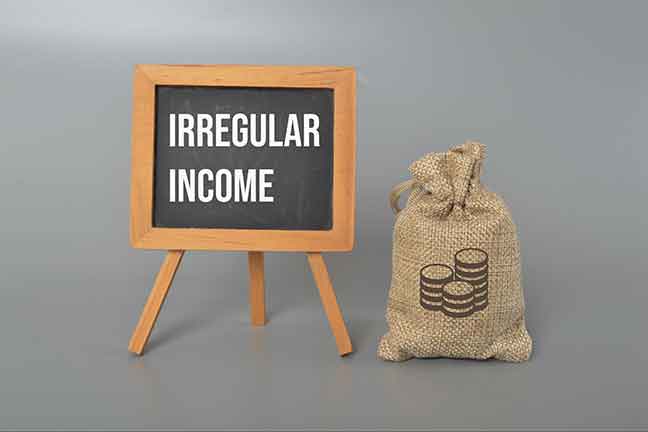If you are a gig worker or an independent contractor, you likely have to live on irregular income since projects may not be consistent or guaranteed. To most people, having to make ends meet with such irregular income can be challenging — the lack of financial stability can be stressful, especially during slow periods or when dealing with late payments.
It is common knowledge that those with steady income will find it easier to project future income and budget their expense. On the contrary, when your income changes each month, making long-term or even medium-term financial goals is nearly impossible. Worse, if you aren’t careful, you may find yourself losing track of your expenses and end up facing severe cashflow or debt issues.
If you are living on an irregular income and at the same time thinking about what you can do to avoid falling into such a dire situation, you have come to the right place. In this blog, we will explain how you can adopt zero-based budgeting to better handle your personal finances and proactively manage your financial obligations even if you don’t have a regular income.
Zero-based Budgeting
With zero-based budgeting, you allocate your income and expenses based on a zero-sum budget, where every dollar you earn is assigned to a specific purpose.
If you are relying on irregular incomes, zero-based budgeting requires you to think about how to distribute every penny you earn in a single month across all your living expenses and savings goals. This method encourages scrutiny of your spending habits and ensures that spending does not run out of control.
Calculate Your Income
Start budgeting with an irregular income is slightly more complex than with a regular paycheck. Whether you are self-employed or running a small business, the first step is to go through your past pay stubs or revenue record and identify the lowest monthly income as your starting point.
Why not use the average monthly income? The reason is that using the lowest amount is more prudent. It prepares you for periods of reduced income and ensures that you can cover your necessary expenses during challenging times.

List Your Expenses
Now, let’s tackle your monthly bills. If you find it difficult to include all your expenses in the list, credit card statements can be a helpful resource.
You can categorize your monthly expenses based on their nature and importance. For example, group fixed expenses like car payments and rent separately from variable expenses like entertainment. Alternatively, you can group them into essential expenses (e.g., utilities and insurance) and non-essential expenses (e.g., TV streaming services).
When making a monthly budget with an irregular income, it’s crucial to prioritize fixed expenses or essential ones. These items can give you a better idea of the minimum amount of money you need to spend each month.
Subtract your lowest monthly income by the average monthly essential or fixed expenses. If the result is a negative amount, it indicates that you may face financial gaps during low-income months. In such cases, it’s important to take proactive measures to address the potential challenge.
Reduce Expenses
One way is to cut back on essential items. This can be more challenging than reducing discretionary costs, but there are various assistance programs, local community resources and charity organizations that can help you save more money.
For instance, you may qualify for the Supplemental Nutrition Assistance Program (SNAP) if you meet specific requirements including household income and citizenship. This federal program provides financial support for needy families and individuals to buy basic food.
Similarly, you may be eligible for a FREE smartphone, and cheaper internet and mobile phone services if you meet specific requirements of the Affordable Connectivity Program (ACP) and Lifeline Program. These two programs aim to provide affordable and high-quality communications services for low-income families and individuals.
Qualified participants of the ACP can receive a monthly discount of up to $30 on broadband service (up to $75 if you live on qualifying tribal lands). The Lifeline Program provides a monthly discount of up to $9.25 on phone services (up to $34.25 for those who live on qualifying tribal lands).
If you qualify for the ACP or Lifeline and apply directly with service providers like EASY Wireless, you will receive more benefits! Residents in certain states can score an EASY Wireless Unlimited Plan which includes:
- FREE Unlimited Data
- FREE Unlimited Talk
- FREE Unlimited Text
- FREE SIM Card Kit and Activation
- Choose to Keep Your Number or Get a New One
To start with EASY Wireless, apply online by filling out the form below and clicking “Enroll Now”.
Or visit one of the EASY Wireless retail stores, where our customer service agent will help you apply for your benefits.

Diversify Income Sources
The other way to narrow the gap is to diversify the sources of your income to earn extra money. Relying on a single stream of irregular income can be risky, as it may lead to financial instability during low-income periods. By exploring alternative part-time work, freelancing opportunities or other income-generating activities, you can add more flexibility to your personal finances.
In this way, you may have more resources to allocate to discretionary spending or savings accounts without sacrificing all the fun in your life.
Build an Emergency Fund for Low-Income Months
When dealing with irregular income, it’s crucial to establish an emergency fund to save for rainy days.
Take a closer look at your monthly expenses again and identify areas where you can save money, particularly discretionary expenses that can be reduced. Then deposit the amount saved each month into a designated bank account specifically for your emergency fund. This account should be separate from your regular checking account to avoid the temptation to use the funds for other purposes.
When you earn more in certain months, resist the urge to overspend or engage in impulsive consumption. Instead, stick to your budget and add the extra income directly into your emergency fund.
While you gradually build this emergency fund, consider leveraging your savings account to generate passive income streams. This could include options such as high-yield savings accounts or low-risk and highly liquid investment options. These strategies can provide additional income to supplement your irregular earnings and further strengthen your financial safety net.
Prepared for Irregular Expenses
While taxes are typically due annually, it’s important to include taxes in your monthly budget.
First, estimate your tax liability based on your income and tax bracket. By doing so, you will know how much money you need to set aside each month to cover your taxes. Then allocate a portion of your income into a separate savings account each month.
Some specialized banking services can help you calculate the estimated taxes and manage your finances too.

Track and Monitor Your Cash Flow
Lastly, don’t forget to track and monitor your cash flow regularly to stay on top of your finances. You may need to adjust your monthly budget when your incomes or expenses change significantly.
If you find it challenging to manage your cash flow effectively, consider seeking the help of a financial advisor or planner. They can provide guidance tailored to your specific financial situation and help you make informed decisions.


